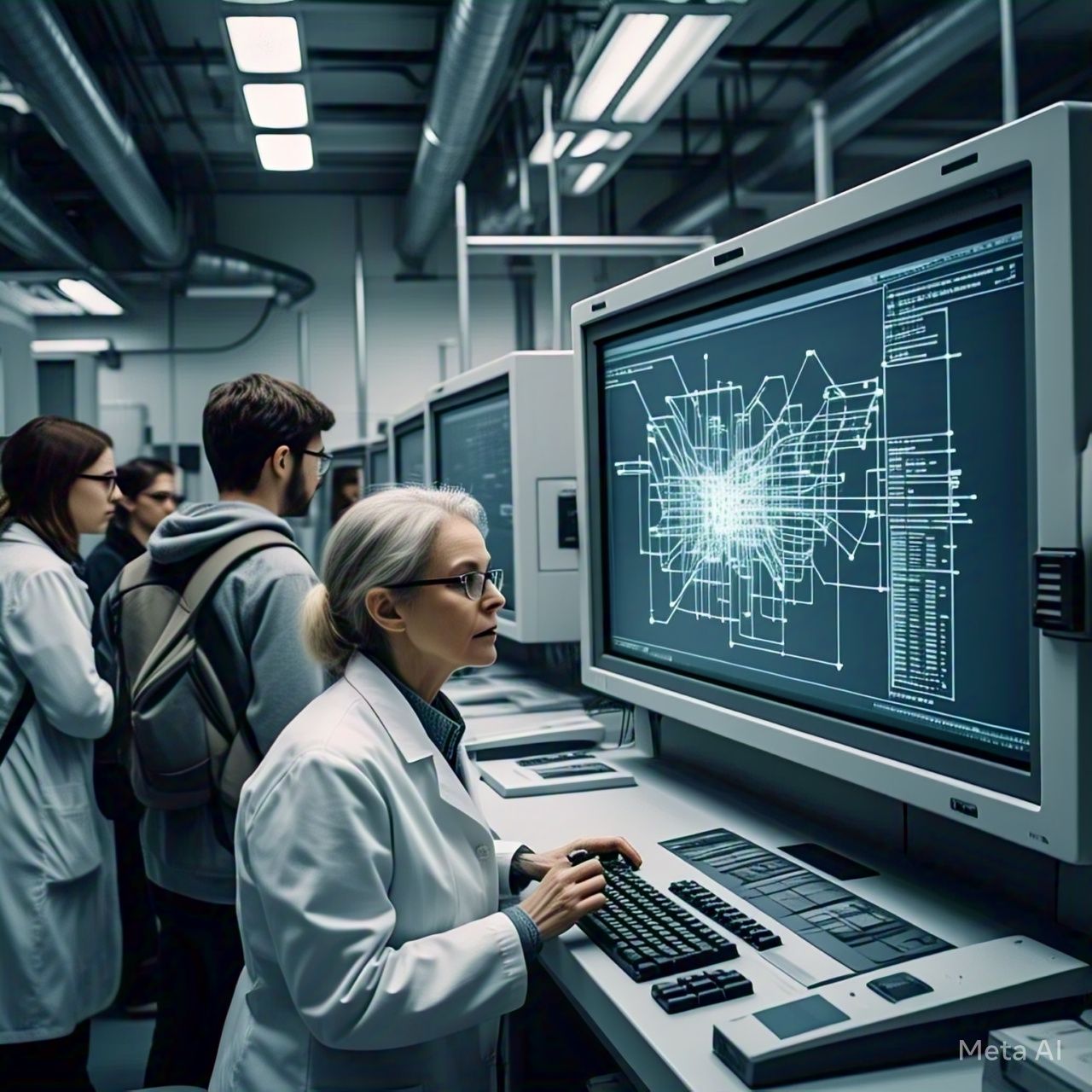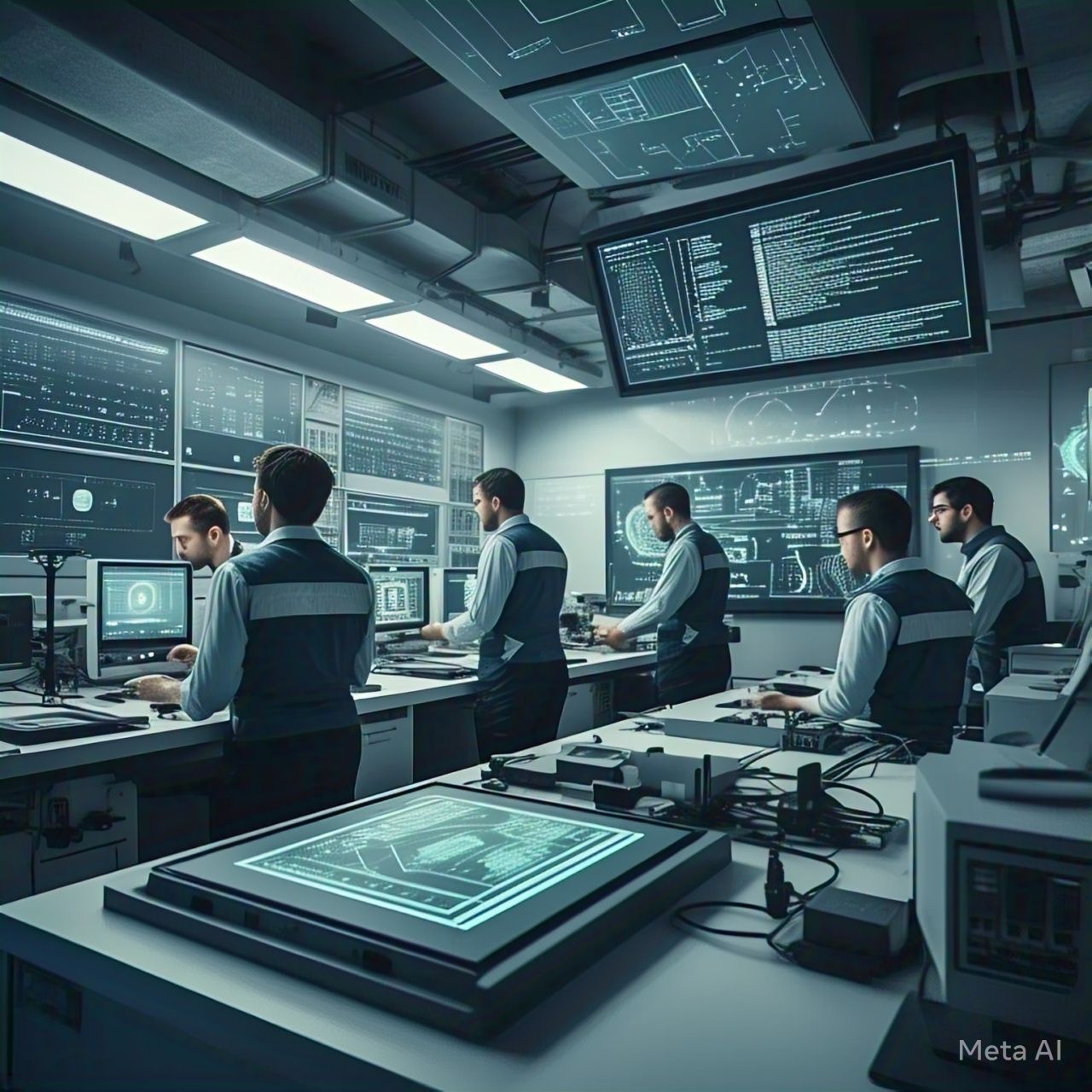Table of Contents
- Introduction
- What Are Neural Networks?
- How Neural Networks Influence AI Decision-Making
- Advantages of Neural Networks in AI
- Potential Threats and Risks of Neural Networks
- Neural Networks in Real-World Applications
- Ethical Considerations of AI Decision-Making
- The Future of Neural Networks in AI
- Conclusion
- FAQs
Introduction
Artificial Intelligence (AI) has become an integral part of our daily lives, driving innovations in healthcare, finance, cybersecurity, and even entertainment. At the heart of AI’s ability to make complex decisions lies neural networks—a form of machine learning modeled after the human brain. But while neural networks offer immense potential, they also present significant risks. Could their increasing influence become a threat to humanity, or do they serve as an unparalleled advantage?
This article explores the role of neural networks in AI decision-making, their benefits, risks, and the ethical concerns surrounding their deployment.
What Are Neural Networks?
Neural networks are computational models inspired by the human brain’s neural structure. These systems process information in layers, making them capable of recognizing patterns, making predictions, and improving their accuracy over time through learning algorithms. Key components of neural networks include:
- Input Layer: Receives data for processing.
- Hidden Layers: Perform computations and pattern recognition.
- Output Layer: Produces the final decision or prediction.
There are various types of neural networks, including:
- Convolutional Neural Networks (CNNs): Used in image and video recognition.
- Recurrent Neural Networks (RNNs): Effective for sequential data like speech and text.
- Generative Adversarial Networks (GANs): Used for content generation and deepfake technology.
How Neural Networks Influence AI Decision-Making
Neural networks allow AI to analyze large datasets, detect trends, and make predictions. Their influence extends to:
- Medical Diagnosis: AI can detect diseases from medical imaging.
- Fraud Detection: Banks use neural networks to identify suspicious transactions.
- Autonomous Vehicles: Self-driving cars rely on neural networks for object recognition and route planning.
- Natural Language Processing (NLP): AI chatbots and virtual assistants use neural networks to interpret and respond to human queries.
By mimicking human cognitive functions, neural networks enable AI to make decisions with high accuracy. However, their complexity raises concerns about transparency and reliability.
Advantages of Neural Networks in AI
The use of neural networks in AI offers several benefits, including:
| Advantage | Description |
|---|---|
| High Accuracy | Neural networks improve decision-making through training on vast datasets. |
| Automation | AI can perform complex tasks without human intervention. |
| Pattern Recognition | Identifies trends that humans might overlook. |
| Scalability | Can process massive amounts of data efficiently. |
| Continuous Learning | Improves over time, adapting to new information. |
These advantages make neural networks indispensable in industries that rely on precision and efficiency.
Potential Threats and Risks of Neural Networks
Despite their advantages, neural networks also pose significant risks:
- Lack of Transparency (Black Box Problem): Neural networks operate in ways that are often difficult to understand, making it challenging to trace how they arrive at decisions.
- Bias and Discrimination: If trained on biased datasets, neural networks can reinforce social inequalities.
- Security Vulnerabilities: Hackers can exploit neural networks through adversarial attacks, leading AI to make incorrect decisions.
- Unintended Consequences: AI can behave unpredictably, leading to ethical dilemmas and potential legal issues.
- Job Displacement: Automation powered by neural networks may replace human workers, leading to unemployment in certain industries.
Addressing these challenges is crucial to ensuring AI remains a tool for progress rather than a source of unintended harm.
Neural Networks in Real-World Applications
Neural networks are widely used in various sectors, revolutionizing the way we work and live:
- Healthcare: AI-assisted diagnostics improve patient outcomes.
- Finance: Fraud detection algorithms prevent financial crimes.
- Retail: Recommendation systems personalize shopping experiences.
- Transportation: Autonomous vehicles rely on neural networks for navigation.
- Entertainment: AI enhances gaming experiences and content creation.
The broad applicability of neural networks demonstrates their immense potential—but also highlights the importance of regulating their use responsibly.
Ethical Considerations of AI Decision-Making
As AI systems take on more decision-making responsibilities, ethical concerns arise:
- Accountability: Who is responsible if an AI-driven decision results in harm?
- Fairness: How can AI be programmed to avoid biases and discrimination?
- Privacy: Can AI decision-making respect user data and confidentiality?
- Autonomy: Should AI have the power to make critical choices without human oversight?
Governments and tech companies must work together to develop regulations that ensure AI remains beneficial to society.
The Future of Neural Networks in AI
Looking ahead, neural networks will continue evolving, with advancements in:
- Explainable AI (XAI): Making AI decisions more transparent.
- Quantum Computing: Enhancing AI processing power.
- AI Ethics and Governance: Implementing frameworks to regulate AI use.
- Human-AI Collaboration: Improving synergy between machines and humans.
Neural networks will undoubtedly play a crucial role in shaping the future of AI, but careful oversight is necessary to mitigate risks.
Conclusion
Neural networks are both a powerful advantage and a potential threat in AI decision-making. While they enhance accuracy, efficiency, and automation, concerns regarding transparency, bias, and security must be addressed. Striking a balance between innovation and ethical responsibility will determine whether AI remains a beneficial tool for humanity or evolves into an uncontrollable force.
As AI continues to advance, understanding the impact of neural networks will be crucial for ensuring responsible development and deployment in the years to come.
FAQs
1. What are neural networks in AI?
Neural networks are computational models inspired by the human brain, used in AI to process information, recognize patterns, and make decisions.
2. Why are neural networks important in AI decision-making?
They allow AI to analyze vast datasets, learn from experience, and make autonomous decisions with high accuracy.
3. What are the risks of using neural networks in AI?
Potential risks include bias, security vulnerabilities, lack of transparency, and unintended consequences in decision-making.
4. How can neural networks be made more ethical?
By ensuring diverse training data, implementing transparency measures, and creating regulatory frameworks for AI governance.
5. Will neural networks replace human decision-making entirely?
While AI can assist in decision-making, human oversight remains essential to ensure ethical and responsible use of technology.





